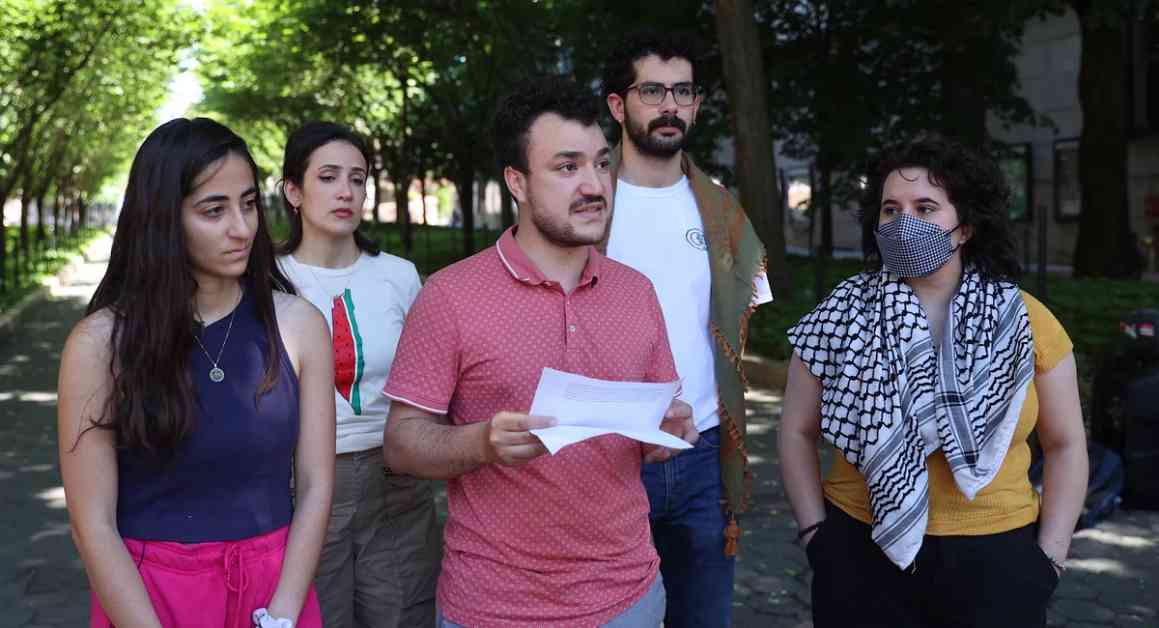A Columbia University graduate student and pro-Palestinian activist, Mahmoud Khalil, was recently arrested by U.S. Immigration and Customs Enforcement officers in a controversial move that has sparked outrage and legal challenges. The arrest took place at a university-owned residence building near Columbia’s campus, raising questions about the legality of the detainment. Khalil’s attorney, Amy E. Greer, of the firm Dratel & Lewis, revealed that ICE agents claimed Khalil’s student visa had been revoked, despite him being a legal permanent resident and not on a student visa.
The Situation Unfolds
Following Khalil’s arrest, Columbia University issued a statement acknowledging the presence of ICE around campus but did not confirm the specifics of Khalil’s situation. The university emphasized the necessity for law enforcement to have a judicial warrant to enter non-public university buildings, though it remained unclear whether ICE had obtained one in this case. Khalil’s legal team promptly filed a habeas corpus petition challenging the legitimacy of his detention, expressing concerns about his unknown whereabouts and the possibility of being transferred to a facility as distant as Louisiana.
The Fight for Justice
As the legal battle unfolds, Greer highlighted the significance of defending Khalil’s rights in the face of what she described as a targeted attack on his activism. Khalil’s involvement in student-led, pro-Palestinian protests at Columbia has drawn attention to the broader issues of free speech and political expression on college campuses. Greer emphasized the importance of addressing what she termed as “terrible and inexcusable” actions by ICE, suggesting a broader pattern of repression against student activism and political speech.
Expert Insights and Public Outrage
Donna Lieberman, the executive director of the New York Civil Liberties Union, joined the chorus of voices condemning Khalil’s arrest as a violation of his First Amendment rights and a troubling echo of past McCarthyism-era tactics. The arrest comes in the wake of the Trump administration’s decision to revoke federal funding for Columbia University, citing concerns about anti-Semitic harassment and discrimination on campus. Columbia’s interim president, Katrina Armstrong, responded by expressing the university’s commitment to addressing these issues while reviewing the federal funding decision.
In Conclusion
The arrest of Mahmoud Khalil has ignited a fierce debate about immigration enforcement, free speech, and student activism on college campuses. As legal proceedings unfold and public scrutiny intensifies, the case of Khalil stands as a stark reminder of the complex intersection of politics, law, and human rights in contemporary society. The outcome of Khalil’s situation will likely have far-reaching implications for how universities navigate issues of activism, dissent, and governmental overreach in the future.












